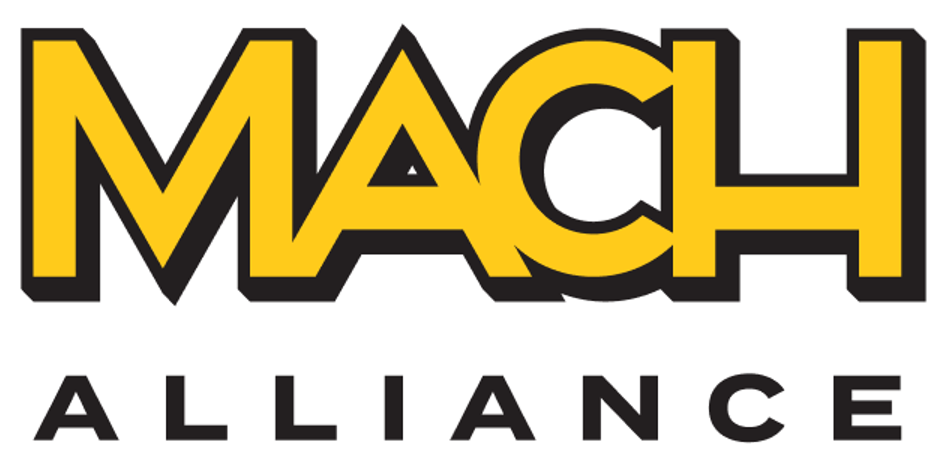Sitecore Partners with Microsoft to Launch Industry’s First AI Innovation Lab for Marketers

The collaboration will enable the exploration, prototyping, and validation of AI-driven solutions for content and experience, giving marketers a needed edge in the fast-paced AI realm. Interview with CEO Dave O’Flanagan.
At last year's Sitecore Symposium, I ran into a number of people who referred to CEO Dave O’Flanagan simply as:
“Dave O.”
Cool, I thought. As nicknames go, it’s familiar, endearing, and humanizing—traits not always associated with a Chief Executive tasked with guiding a tech company through the treacherous jungles of AI.
But that’s exactly who Dave is: A razor-sharp leader who manages to be kind, generous with his time, and never too serious to roll with a little lighthearted humor.
When we recently spoke, this nickname conjured another “Dave O” for me: Bob Einstein’s iconic television character, “Super Dave” Osbourne. I’m not sure if this is an upgrade or even a compliment, but when I greeted him, I asked which he might prefer.
“I’ll take both,” he responded with a laugh.
I’ve had multiple conversations with Dave since he took over as Sitecore’s interim CEO last March, replacing incumbent Steve Tzikakis, who had held the role for the previous three and a half years. Dave was officially confirmed about a month later.
I’m not sure when the nickname was adopted, but it speaks volumes about the kind of leader Dave is. Having spoken to various agencies at Symposium '24, his visibility has been key to building trust with users, many of whom were concerned about the future of Sitecore’s legacy XP platform in the wake of XM Cloud’s meteoric growth.
And rightly so: Global revenue for its popular new SaaS CMS grew 100% in 2024, with 130% growth in the U.S. alone. Despite those gains, Dave wanted to ensure that legacy XP users were part of the company’s vision and growth.
“It’s very important for us that we’re clear with our customers that we’re going to continue to innovate on Sitecore XP and deliver a lot of value,” he said. That was codified by the availability of its newest brand-aware AI service, Sitecore Stream, for XP.
Like its peers, Sitecore is betting big on AI. At the same time, enterprises are struggling to capture value from their broader AI investments. According to a McKinsey survey, only one percent of company executives would describe their GenAI rollouts as “mature.” In other words, these are still the early days.
As a cohort, marketers have increasingly relied on generative tools over the last two years, and AI is activating the potential for personalization and experimentation like never before. ChatGPT has been a big part of the genesis, but content creators have expanded their AI toolkits to a host of other applications and even custom-trained models.
There’s an undeniable element of speed to all of this. Despite the challenges surrounding governance, brands have been enthusiastic about the potential of AI, and they’ve been moving fast to onboard solutions. There’s been lots of testing—and plenty of failures along the way. In fact, according to Gartner, 30% of GenAI initiatives will be abandoned after POC by the end of 2025.
There’s also the persistent question of data security and how LLMs are trained, as well as the heightened risk to reputation based on the quality of AI outputs. This has compounded the trepidation.
It’s no wonder marketers have been hesitant to invest in new technologies without substantive proof of ROI. And that’s especially true right now when economic headwinds might be curbing the appetite for IT spending.
So where do they find guidance on this seemingly perilous trek to AI?
Introducing the Sitecore AI Innovation Lab
To help marketing leaders navigate these challenges, Sitecore has partnered with Microsoft to launch a first-of-its-kind AI Innovation Lab. It’s a guided environment designed for marketing leaders looking to rapidly explore AI-driven solutions that are powered by Microsoft Azure and Azure OpenAI Services.
As part of the program, participants will work alongside experts from both Sitecore and Microsoft to prototype solutions for their unique challenges using an agile, low-risk approach.
In the end, users will have either a validated AI solution or deep insights that can empower marketers to achieve their business goals and position their brands at the forefront of digital innovation. AI solutions developed with customers will be integrated into Sitecore’s DXP to further enhance, improve, and futureproof the platform.
“We're not going into these discussions with pre-existing ideas or solutions. We want to co-innovate and do design-based workshops with them, so we can think about how to solve these problems in new and novel ways.”
According to Dave, that unique focus on mapping a strategy and collaborating closely with customers is an essential part of the recipe for achieving a successful outcome with AI.
“We're not going into these discussions with pre-existing ideas or solutions,” he said. “We want to co-innovate and do design-based workshops with them, so we can think about how to solve these problems in new and novel ways.”
Dave went on to describe the advent of these new technologies as akin to a “Cambrian explosion” of startups, with an unimaginable ecosystem of tools blossoming in the wild. With the AI Innovation Lab, the mission is to help marketers leverage these technologies in a safe and secure way—and that’s where the force multiplication of Microsoft provides a boost.
“For us to come in with a brand like Microsoft and their promise of trust, and Sitecore’s promise of data security and that we won't share any of your data to train any models or share that in any way, I think customers have really leaned into that. It allows us to create this safe space where we can work together to innovate on unique business problems.”
Building AI confidence
The road to this new AI Innovation Lab began where you might expect: with customers. Dave and the Sitecore team have been in discussions with CEOs and CMOs over the last two years, establishing a high level of conviction that generative AI—and the advancement of these new technologies—was going to dramatically impact their work and the productivity of their teams.
As he noted, these brand leaders have been keenly focused on how AI could fundamentally change how they deliver personalized, tailored experiences to their end customers regardless of channel. Those possibilities have been driving the rapid pace of innovation and investment.
“Customers were coming to Sitecore and saying, ‘Hey, this is a really exciting technology, but I'm not quite sure how to get my hands on it and apply it to specific business problems that I have. I know my marketing teams are using ChatGPT, I know they're using co-pilots, but I'm not sure about how the data is flowing in and out. And actually, what I want to do is understand how can I apply this to my workflows, my platforms, and my teams so I can make them more productive.’ And so that was the genesis of it.”
According to Dave, these kinds of queries triggered a number of conversations with some of Sitecore’s biggest customers, looking for ways to help with key challenges like transforming the back office content supply chain by leveraging AI, and building smart strategies to tackle hyper-personalization at scale. The missing link, it seemed, was guidance from a trusted partner.
“The reason why I see this Innovation Lab as being so important is that it gives an opportunity for our customers who traditionally struggle a little bit to move at the right pace,” he said. “They can work with Sitecore and Microsoft and kind of hook into innovations as they're happening.”
Of course, hooking in might require some trials and tribulations. A good example, he explained, was the new GPT-4o image generator from OpenAI (which is pretty astonishing). Sitecore has already started working with some customers to apply this model to product catalogs stored on Sitecore Content Hub, its digital asset management system.
“We got a number of emails from key customers asking, ‘Hey, is this good enough yet?’ Our teams leaned in and worked with them very quickly over the course of a few days around a couple of use cases. And I think across the board, we decided not yet. I don't think it's never, but that technology isn’t quite ready to allow them to create branded product images at scale that they felt confident with they could push to the market and represent their brand.”
This is where the AI Innovation Lab is paying off—by providing a layer of confidence that helps brands make intelligent decisions about AI.
“The technology is moving so quickly, they want to be able to validate really quickly,” Dave explained. “Is it useful? Is it not? If it's useful, we'll double down. If it's not, we'll put it on the shelf and wait and see how it evolves over time.”
Tapping Microsoft’s Azure and OpenAI capabilities
As Dave reinforced, Microsoft was the ideal collaborator for this kind of venture given its expansive and scalable cloud features in Azure and its deep integration with OpenAI.
“We've got a partner in Microsoft that has access to all the latest and greatest tools in OpenAI, but they’re also doing some really exciting and innovative things in their Azure platform as well,” he mentioned. “It’s this really symbiotic relationship where we can bring the best technology, apply it deeply to domain-specific problems and marketing workflows and challenges, and do it in collaboration with Microsoft.”
On the Microsoft side, there’s an equitable amount of enthusiasm for what the Innovation Lab can do for customers. According to Jason Graefe, Microsoft Corporate Vice President, WW ISVs and Digital Natives, the lab highlights an unwavering dedication to driving digital transformation and helping businesses thrive in a digital-first world.
"Microsoft is proud to collaborate with Sitecore on this groundbreaking initiative that empowers marketing leaders to harness the full potential of AI," he said. "By providing access to expert guidance, we are enabling marketers to innovate rapidly and transform their content operations.”
Why it matters
In the breakneck race to adopt AI technologies, many organizations have missed the mark on capturing value. As McKinsey’s data suggests, some are abandoning their ambitions, while others continue to stoke the sunk cost fallacy around a bad strategy.
Sitecore’s AI Innovation Lab is alleviating this pain with real guidance and validation. By offering collaborative prototyping engagements with proven technology leaders, brands and marketing teams can be more proactive in establishing the value of an AI investment and whether it will address their unique challenges. This approach could accelerate overall AI adoption by ensuring better outcomes.
Microsoft is a behemoth, as is OpenAI. And there are certainly market alternatives from both the model and infrastructure perspective. I asked Dave if the lab partnership might limit the perception of choice. He was quick to reinforce Sitecore’s flexibility, and that customers still have the freedom to bring their own models and build in any direction.
“There's always going to be specialized content writers or image editors,” he said. “Potentially, they will have proprietary models or even trained a model themselves. So I just come back to our foundational philosophies at Sitecore. We're a composable platform. We're open for integration."
Underlying these advancements with AI is a big question surrounding the future of websites. We’re already seeing AI agents interface and even transact with web experiences on our behalf, and we can expect more of this to happen (and faster). I asked Dave what this means for Sitecore and its ecosystem.
“We want to have our content platform be able to really interact effectively with these LLMs and support agent communications and things like that. But equally, when somebody comes to a website, you really have to make it count. The experience needs to be personalized. It needs to be tailored. The content needs to be right.”
For all of these reasons, Dave sees continued opportunities ahead for brands and their agency partners as they find ways to thrive in this new world of AI-powered experiences. As he said, he doesn't see websites disappearing anytime soon, but their role will evolve—and perhaps become more important.
"I think what we're seeing from customers is that they want an innovative partner that can do the things they need today,” Dave said. “So it's not just about tomorrow, but can they deliver the website or omnichannel experience they need today.”
Dave also said that customers are asking more of the right questions regarding partners, and how they're able to futureproof with AI: Do they have an innovation lab? Do they have an exciting roadmap? Do they have adaptability? Am I buying a monolithic architecture that I'm wedded to, or is there architectural flexibility that will allow me to flex as the market changes?
When we hear the word “lab,” we immediately think of an environment where scientists and explorers can experiment, test hypotheses, break conventions, and ultimately stumble upon revelation. But these ventures are seldom done in isolation, and the best work comes from collaboration. In this sense, Sitecore has picked an excellent lab partner.
While an innovation lab isn’t the answer to all our AI woes, it’s certainly a step in the right direction. At the end of the day, it’s important to remind ourselves that we’re building all of this for people—not machines.
“We've kind of unleashed human potential.”
Sage words from Dave O… or Super Dave. Take your pick.
Looking for guidance on Sitecore? Talk to an expert.
Upcoming Events

The Composable Conference 2025
April 22-24 – Chicago, USA
Experience the future of composable and MACH principles in “The Windy City” and dive even deeper into the innovative world of MACH architecture and its benefits for your business. Building on the momentum of MACH THREE, this conference will provide your teams with the expert, impartial guidance needed to craft a winning transformation strategy and leverage the latest advancements in automation and Al to maximize efficiency and drive your organization forward. This event is ideal for executives, business leaders, technologists, and everyone in between who is looking to harness the power of composable. Secure your spot today.

CMS Summit 25
May 13-14, 2025 – Frankfurt, Germany
Don't miss the first European edition of our prestigious international conference dedicated to the global content management community! CMS Summit 25 will bring together top-notch speakers, our renowned learning format, and engaging social events. Hear from leading practitioners like Deutsche Bahn, Dr. Oetker, and more – and join customers, agencies, and CMS vendors as we discuss current trends and what's ahead for the content and digital experience fields. Connect and network at the only vendor-neutral, in-person conference focused on CMS. Space is limited for this exclusive event, so book your seats today.

CMS Connect 25
August 5-6, 2025 – Montreal, Canada
We are delighted to present the second annual summer edition of our signature global conference dedicated to the content management community! CMS Connect will be held again in beautiful Montreal, Canada, and feature a unique blend of masterclasses, insightful talks, interactive discussions, impactful learning sessions, and authentic networking opportunities. Join vendors, agencies, and customers from across our industry as we engage and collaborate around the future of content management – and hear from the top thought leaders at the only vendor-neutral, in-person conference exclusively focused on CMS. Space is limited for this event, so book your seats today.
